ড. মাহ্দী মিরাজ বাংলাদেশের ভোলা জেলায় জন্মগ্রহণ করেন। প্রাথমিক শিক্ষা ভোলায় সম্পন্ন হলেও, কৈশোরের একটি বড় অংশ তিনি বরিশালের ক্যাডেট কলেজে কাটিয়েছেন। উচ্চ মাধ্যমিক পরীক্ষায় বোর্ড মেধাতালিকায় ১২তম স্থান অধিকার করার পর ব্র্যাক বিশ্ববিদ্যালয়ে কিছুদিন পড়াশোনা করেন। পরে যুক্তরাজ্যের রেকছাম শহরের গ্লিনডুর বিশ্ববিদ্যালয় (Wrexham Glyndŵr University) থেকে ব্যাচেলর, মাস্টার্স এবং পিএইচডি ডিগ্রি অর্জন করেন। তিনি বিশ্ববিদ্যালয় জীবনকালে সক্রিয় ছাত্র রাজনীতির সঙ্গে যুক্ত ছিলেন এবং বিশ্ববিদ্যালয় ছাত্র সংসদের প্রথম বিদেশী সম্পাদক হিসেবেও নির্বাচিত হন।
পেশাগতভাবে তিনি সৌদি আরবের হায়েল বিশ্ববিদ্যালয়ে (University of Ha’il) প্রভাষক এবং সিসকো নেটওয়ার্ক একাডেমির পরিচালক হিসেবে সাত বছর, এবং বাহরাইনের AMA International University-তে সহকারী অধ্যাপক হিসেবে দেড় বছর শিক্ষকতা করেন। বর্তমানে তিনি হংকং-এর চাইনিজ ইউনিভার্সিটি অফ হংকং (The Chinese University of Hong Kong)-এর Centre for Financial Regulation and Economic Development (CFRED)-এ পোস্ট-ডক্টোরাল ফেলো হিসেবে ব্লকচেইন, ফিনটেক ও রেজটেক প্রযুক্তি নিয়ে গবেষণা করছেন।
ড. মাহ্দী মিরাজ বিভিন্ন আন্তর্জাতিক প্রজেক্টের মাধ্যমে বাংলাদেশী তরুণদের সঙ্গে কাজ করছেন, যেখানে হোলোগ্রাফিক ইমেজিং, আইওটি, মোবাইল লার্নিং এবং ব্লকচেইন প্রযুক্তির প্রয়োগ গুরুত্বপূর্ণ ভূমিকা রাখছে।
💬 প্রশ্নোত্তর পর্ব:
প্রশ্ন: আপনার সমন্ধে আমাদের একটু বলুন।
উত্তর: আমার জন্ম ভোলা জেলাতে। শৈশব ভোলায় কাটলেও, ক্যাডেট কলেজে পড়ার সুবাদে কৈশোরের একটি বড় অংশ কেটেছে বরিশালে। উচ্চ মাধ্যমিক পরীক্ষায় বোর্ডের মেধা তালিকায় ১২তম স্থান অধিকার করার মাধ্যমে ক্যাডেট কলেজে পড়াশোনার সমাপ্তি। পরে কিছুদিন বাংলাদেশের ব্র্যাক বিশ্ববিদ্যালয়ে পড়াশোনা করার পর যুক্তরাজ্যে চলে যাই। গ্লিনডুর বিশ্ববিদ্যালয় থেকে ব্যাচেলর, মাস্টার্স এবং পিএইচডি ডিগ্রি অর্জন করি। বিশ্ববিদ্যালয়ে ছাত্র রাজনীতির সঙ্গে সক্রিয়ভাবে যুক্ত ছিলাম এবং দু’বার বিশ্ববিদ্যালয় ছাত্র সংসদের শিক্ষা বিষয়ক সম্পাদক নির্বাচিত হই। বর্তমানে গ্লিনডুর বিশ্ববিদ্যালয়ের CURI (Centre for Ultra-realistic Imaging) গবেষণা কেন্দ্রের সাথে ভিজিটিং ফেলো হিসেবে যুক্ত আছি।
পেশাগতভাবে, সৌদি আরবের হায়েল বিশ্ববিদ্যালয় এবং বাহরাইনের AMA International University-এ শিক্ষকতা করেছি। বর্তমানে হংকং-এর চাইনিজ ইউনিভার্সিটি অফ হংকং-এ পোস্ট-ডক্টোরাল ফেলো হিসেবে ব্লকচেইন গবেষণা করছি। আমার এই যাত্রায় পরিবার, শিক্ষক এবং সহকর্মীদের গুরুত্বপূর্ণ অবদান রয়েছে।
প্রশ্ন: বর্তমানে আপনি কী নিয়ে গবেষণা করছেন?
উত্তর: আমি বর্তমানে হংকং-এর চাইনিজ ইউনিভার্সিটি অফ হংকং- এর CFRED-এ ফিনটেক (FinTech) এবং রেজটেক (RegTech) নিয়ে কাজ করছি। এই প্রজেক্টের মূল কাজ হলো ব্লকচেইন প্রযুক্তির মাধ্যমে স্মার্ট কন্ট্রাক্টের উপর গবেষণা করা।
প্রশ্ন: আইওটি নিয়ে আপনি অনেকদিন ধরে কাজ করছেন। এটি কিভাবে বাংলাদেশে ব্যবহার করে আমরা উপকার পেতে পারি?
উত্তর: বাংলাদেশে আইওটি (IoT – Internet of Things) প্রযুক্তির অনেক সুযোগ রয়েছে। উদাহরণস্বরূপ, নদীর পানি দূষণ পরিমাপ করতে aquatic বা fish robot ব্যবহার করা যেতে পারে। এছাড়া স্মার্ট কার্ডের মাধ্যমে বিভিন্ন সেবা প্রদান, স্বাস্থ্য খাতে রুগীর সার্বক্ষণিক পর্যবেক্ষণ এবং ইমিগ্রেশন প্রক্রিয়া সহজ করা সম্ভব। আইওটির ব্যবহার সীমাহীন, তাই উদাহরণ দিয়ে তার বিস্তার বোঝানো কঠিন।
প্রশ্ন: আইওটি নিরাপত্তা চ্যালেঞ্জিং বলে সবাই বলছেন – এই ব্যাপারে আপনার মত কি?
উত্তর: অবশ্যই, আইওটির ক্ষেত্রে নিরাপত্তা চ্যালেঞ্জিং। প্রধানত আইওটি ডিভাইসের কম প্রসেসিং ক্ষমতার কারণে সুরক্ষা নিশ্চিত করতে প্রয়োজনীয় এলগরিদম চালানো যায় না। তাই বিকল্প হিসেবে Statistical Fingerprint প্রযুক্তি ব্যবহার করে কাতার বিশ্ববিদ্যালয়ের KINDI গবেষণা কেন্দ্রের সাথে একটি প্রজেক্টে কাজ করছি।
প্রশ্ন: বাহরাইনে কাজ করার অভিজ্ঞতা কেমন ছিল?
উত্তর: সৌদি আরব থেকে বাহরাইনে আসাটা চ্যালেঞ্জিং ছিল। দেশটি বহুমাত্রিক সংস্কৃতিতে গড়ে উঠেছে। গ্রীষ্মকালে উচ্চ আর্দ্রতার কারণে পরিবেশ কঠিন। সেখানে আমি IEEE-র সাথে সক্রিয়ভাবে যুক্ত হই এবং SIGHT Group-এর সেক্রেটারি হিসেবে নির্বাচিত হই। এছাড়াও বাংলাদেশ স্কুলে বহিরাগত পরীক্ষক হিসেবে কাজ করেছি। দেশের বাইরে থেকেও দেশের জন্য কাজ করা আনন্দদায়ক ছিল।
প্রশ্ন: ৫ম প্রজন্মের নেটওয়ার্কের সম্ভাবনা বাংলাদেশে কেমন হতে পারে?
উত্তর: ৫জি নেটওয়ার্কের ব্যবহার খুব শীঘ্রই সাধারণ হবে। এর মাধ্যমে 4K/5K টেলিভিশন সম্প্রচার এবং হোলোগ্রাফিক ইমেজ ট্রান্সফার উন্নত হবে। ৫জি ডাউনলিঙ্ক ডাটারেট 20Gbit/s এবং আপলিঙ্ক ডাটারেট 10Gbit/s বা তার চেয়ে বেশি হবে। আইওটি ডিভাইসের ব্যাটারি দীর্ঘমেয়াদি সেবা দেবে। VR ও AR প্রযুক্তির ব্যবহার সহজ হবে, যা দেশীয় পণ্যকে আন্তর্জাতিক বাজারে প্রবেশে সহায়ক।
প্রশ্ন: ভবিষ্যতে কি নিয়ে কাজ করতে চান?
উত্তর: ভবিষ্যতে “বাংলাদেশ” নিয়ে কাজ করতে চাই। ২–৩ বছরের মধ্যে দেশে ফেরার পরিকল্পনা রয়েছে। CURI-এর অধীনে একটি গবেষণা প্রস্তাবনা প্রায় শেষ পর্যায়ে, যা হোলোগ্রাফিক ইমেজের মাধ্যমে রাজেন্দ্রপুর জাদুঘরের প্রত্নতাত্ত্বিক সংগ্রহ সংরক্ষণ করবে এবং বিশ্বের কাছে প্রদর্শন করবে।
প্রশ্ন: প্রবাসে থাকলেও বাংলাদেশী তরুণদের সঙ্গে আপনার কাজ সমন্ধে বলুন।
উত্তর: রাজেন্দ্রপুর প্রজেক্ট অন্যতম। এছাড়া ব্লকচেইনের মাধ্যমে নিয়োগ ব্যবস্থা, Android ব্যবহার করে প্রতিবন্ধীদের শিক্ষা ও পর্যবেক্ষণ, শপিংমল অ্যাপ্লিকেশন এবং মোবাইল লার্নিং (mLearning) অ্যাপ্লিকেশন “মোবাইল একাডেমী” উল্লেখযোগ্য। গবেষণায় আগ্রহী তরুণদের সাথে কাজ বা নির্দেশনা প্রদানে সবসময় প্রস্তুত।
প্রশ্ন: তরুণ শিক্ষার্থীদের জন্য আপনার উপদেশ কি?
উত্তর: সকল বাঁধা উপেক্ষা করে নিষ্ঠা এবং সততার সঙ্গে কাজ করা। অর্জনে অহংবোধ না থাকা। আন্ডারগ্রাজুয়েট বা মাস্টার ডিগ্রীর সময় গবেষণা পত্র লেখা, প্রফেসরদের সঙ্গে যোগাযোগ স্থাপন এবং স্বাধীন চিন্তাভাবনা (Out of the Box) প্রয়োগ করা।
ড. মাহ্দী মিরাজের আন্তর্জাতিক গবেষণার কাজ তরুণ বাংলাদেশী বিজ্ঞানীদের জন্য অনুপ্রেরণার উৎস। ব্লকচেইন, আইওটি এবং হোলোগ্রাফিক ইমেজিংয়ের ক্ষেত্রে তার অবদান ভবিষ্যতে দেশের প্রযুক্তি ও গবেষণার জন্য গুরুত্বপূর্ণ ভূমিকা রাখবে। বিজ্ঞানী অর্গ টিম ড. মাহ্দী মিরাজের এই গবেষণার সাফল্যের জন্য শুভকামনা জানাচ্ছে।
Future of FinTech and RegTech: Insights from Dr. Mahdi Miraj
Dr. Mahdi Miraj was born in Bhola, Bangladesh. Although he spent his childhood in Bhola, he completed much of his adolescence at Barisal Cadet College. After ranking 12th on the board merit list in his higher secondary exam, he briefly studied at BRAC University before moving to the UK. He earned his Bachelor’s, Master’s, and PhD degrees from Wrexham Glyndŵr University. During his university years, he was actively involved in student politics and became the first international secretary of the university student council.
Professionally, he served as a lecturer and director of the Cisco Network Academy at the University of Ha’il, Saudi Arabia, for seven years, and as an assistant professor at AMA International University, Bahrain, for one and a half years. Currently, he is a postdoctoral fellow at the Centre for Financial Regulation and Economic Development (CFRED), The Chinese University of Hong Kong, conducting research on blockchain, FinTech, and RegTech.
Dr. Miraj is also actively engaged with Bangladeshi students abroad through projects on holographic imaging, IoT, mobile learning, and blockchain-based employment systems.
💬 Q&A session:
Question: Can you tell us about yourself?
Answer: I was born in Bhola, Bangladesh, and spent much of my adolescence at Barisal Cadet College. After completing my higher secondary exams, I studied briefly at BRAC University before moving to the UK, where I completed my Bachelor’s, Master’s, and PhD at Wrexham Glyndŵr University. I was actively involved in student politics there and was elected twice as the Education Secretary of the student council. I am still associated with the university’s Centre for Ultra-realistic Imaging (CURI) as a visiting fellow.
Professionally, I have taught in Saudi Arabia and Bahrain and am currently a postdoctoral fellow in Hong Kong, focusing on blockchain research. My family, teachers, and colleagues have played an important role in my journey.
Question: What are you currently researching?
Answer: I am currently working at CFRED, The Chinese University of Hong Kong, on FinTech and RegTech. The project primarily focuses on blockchain technology and smart contract research.
Question: You have worked extensively on IoT. How can it benefit Bangladesh?
Answer: There are many opportunities to use IoT (Internet of Things) technology in Bangladesh. For example, aquatic or fish robots can measure water pollution in rivers. IoT can also be integrated into smart cards for various services, such as simplifying immigration processes, or in healthcare for continuous patient monitoring. The potential applications of IoT are vast.
Question: Many say IoT security is challenging. What’s your opinion?
Answer: Security is indeed a major challenge in IoT. One reason is the limited processing power of IoT devices, which prevents running complex security algorithms. As an alternative, I am working with the KINDI Centre for Computing Research in Qatar on using Statistical Fingerprint technology for IoT security.
Question: How was your experience working in Bahrain?
Answer: Moving from Saudi Arabia to Bahrain was challenging. Although I expected the countries to be similar, I quickly realized Bahrain is a more multicultural society. Summers were tough due to high humidity. I actively participated in IEEE and served as Secretary of the SIGHT Group. I also worked as an external examiner for Information Technology practical exams at the Bangladesh School. Working abroad while contributing to my country was very rewarding.
Question: How can 5G networks benefit Bangladesh in the future?
Answer: 5G adoption will soon become universal. It enables high-quality direct broadcast of 4K/5K television and holographic image transfer. Downlink data rates can reach 20 Gbps and uplink 10 Gbps or higher. Power efficiency will improve, enabling IoT devices to operate for over 10 years. VR (Virtual Reality) and AR (Augmented Reality) technologies will also become feasible, allowing Bangladeshi products easier access to international markets.
Question: What do you plan to work on in the future?
Answer: I want to focus on projects in Bangladesh and plan to return within 2–3 years if the opportunity arises. Under CURI, I am finalizing a project to preserve Rajendrapur Museum’s archaeological collection using holographic imaging and display it globally.
Question: You are working with Bangladeshi youth while living abroad. Can you tell us about these projects?
Answer: The Rajendrapur project is one of the key initiatives. Other projects include blockchain-based recruitment systems, Android applications for special-needs education and monitoring, shopping mall applications, and mobile learning apps like “Mobile Academy.” I am always ready to guide young researchers and support their projects.
Question: Any advice for young students who want to pursue science?
Answer: Work with dedication and integrity, ignoring obstacles. Avoid arrogance in achievements and remain humble. Start writing research papers during undergraduate or master’s studies, which helps with scholarships and academic experience. Network with professionals and professors, and cultivate independent, out-of-the-box thinking.
Dr. Mahdi Miraj’s international research work serves as an inspiration for young Bangladeshi scientists. His contributions in blockchain, IoT, and holographic imaging have the potential to make a significant impact on technological advancement in Bangladesh. The Biggani.org team wishes Dr. Mahdi Miraj continued success and hopes his work inspires future generations.
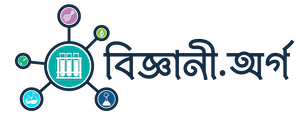
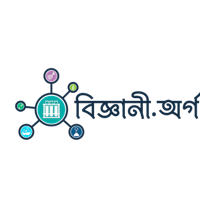
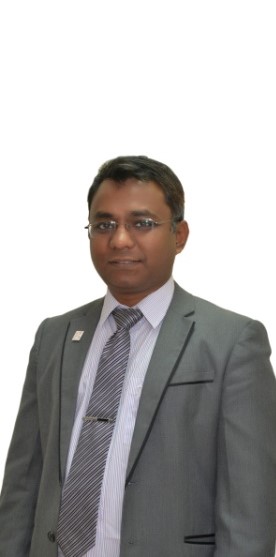


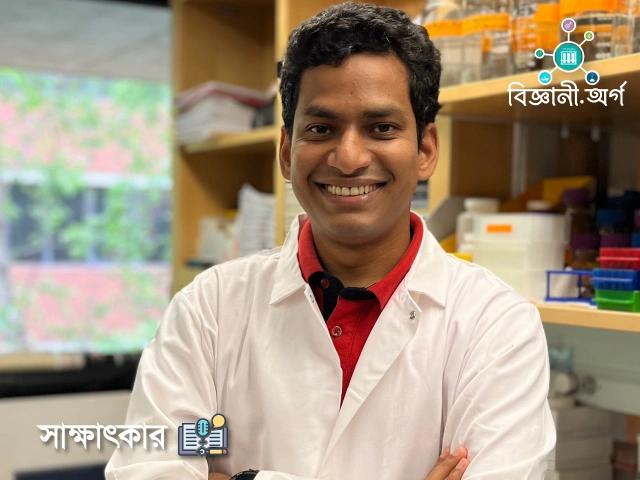
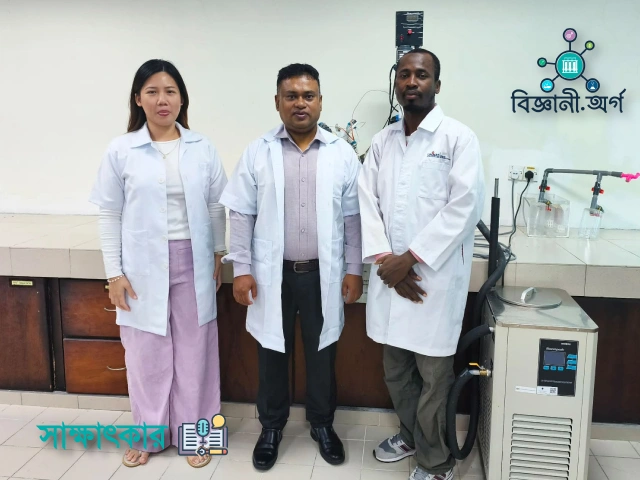
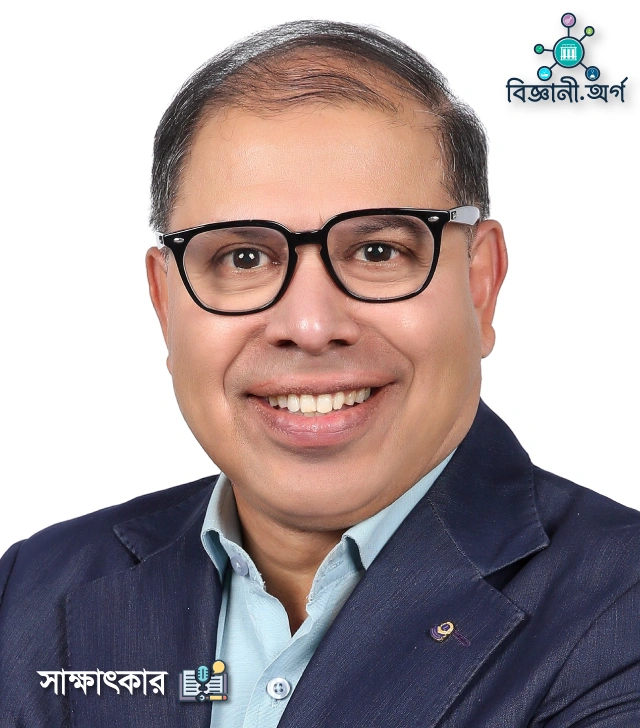
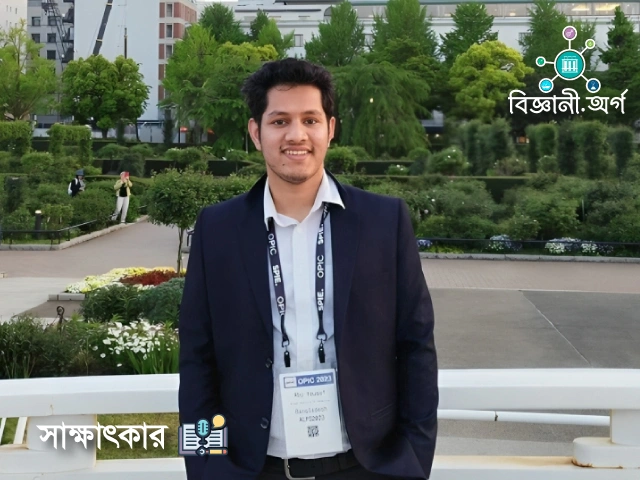
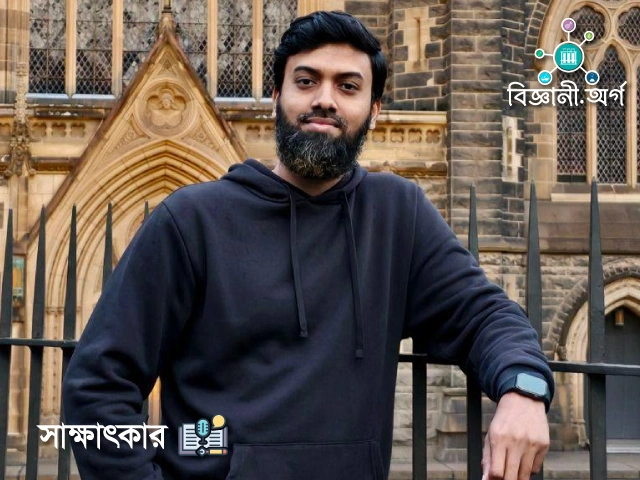
Leave a comment